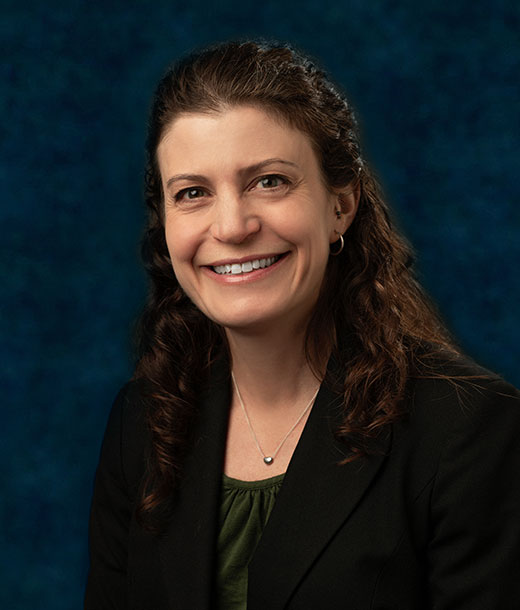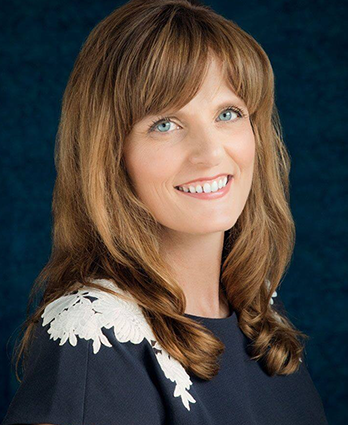Flagstaff Collaborative Divorce Attorney
Flagstaff Collaborative Divorce Lawyer
Divorces in Flagstaff can be extremely difficult, putting a strain on the entire family. The traditional process can involve long disputes in court and tens of thousands of dollars spent in legal fees. Collaborative divorce is an alternative to the traditional divorce process that can save time, stress, and money. The process involves spouses who are getting divorced working as a team with their lawyers to find agreements on key disputed issues outside of the courtroom setting.
Issues handled during the collaborative divorce process include child support, child visitation, spousal support, and asset and debt division. For parents wanting to secure the protection of their child, collaborative divorce cases can be a way to quickly and efficiently reach a resolution.
The distinguished divorce lawyers at Glazer, Hammond, Ruben & Smets, PLLC have years of experience working in this innovative and collaborative field of family law. Whether you are facing a complex case with high assets and many children or have a simple case after being married for just a few years with few assets, our Flagstaff collaborative divorce attorneys can help you and your spouse reach an agreement quickly so that you can move on to the next chapter of your life. Jennifer B. Ruben is one of four attorneys who is certified in collaborative divorce in Northern Arizona and has the knowledge to guide you through the process.
What Is Alternative Dispute Resolution?
Alternative dispute resolution, or ADR, is a group of strategies that involve coming to a common agreement among private parties, which do not engage in the traditional court system. The advantages of leveraging ADR strategies is that they typically take less time, are less formal, often times cost less than court proceedings, and result in less conflict overall.
Some of the most common forms of ADR are:
- Collaborative law. Collaborative law is a method that involves the spouses, their respective lawyers, and other supporting professionals working as a team to resolve issues. The end goal is to reach a mutual agreement on all of the outstanding contested items in a divorce and to reduce conflict within the family.
- Mediation. During mediation, one neutral third party is hired to assist the spouses in finding an agreement on disputed items. While the mediator cannot actively provide legal advice, they help the parties explore creative and mutually beneficial solutions.
- Negotiation. Negotiation is a general term that refers to the exchanging of needs and concerns of each party involved to reach a common agreement that is beneficial for everyone. This can involve the support of third parties, such as lawyers, or it can be only between the individuals involved in the dispute.
Traditional legislation, when compared with ADR, is typically longer, more expensive, and more stressful. Overall, ADR is typically preferred because it can result in common solutions that keep relationships intact and benefit all parties and their children in the long run.
Mediation V. Collaborative Divorce
Collaborative divorce and mediation are both strategies that involve reaching settlements in divorce cases in a cooperative manner and are alternatives to the traditional adversarial divorce proceedings.
During mediation, the couple hires a third neutral party, who is known as a mediator. This mediator can be a lawyer who offers mediation services. A key aspect to note is that the mediator is not directly representing either spouse or actively making any decisions. The mediator is there to serve as a middle ground between the divorcing couple. An experienced mediator will help guide the parties towards collaborative resolution by helping them communicate more clearly with each other, listening to what their key concerns are, and offering potential solutions.
In a collaborative divorce, on the other hand, each spouse hires their own attorney to represent them. Other professionals who can support the divorce, such as child specialists, therapists, and financial specialists, may be involved as well, depending on the specific needs of the divorce. Collaborative divorce puts an emphasis on active cooperation and informed negotiation as opposed to arguing the issues out in the courtroom.
Ultimately, the key difference between collaborative divorce and mediation is the amount of involvement from the lawyers. In collaborative divorce, there is a lawyer for each spouse providing legal advice. In mediation, there is just one neutral party helping to guide and facilitate agreements. If you are trying to decide on whether mediation or collaborative divorce is right for your family, it’s advisable to reach out to a knowledgeable family lawyer for a consultation to go over the options available to you and your situation.
Contested V. Uncontested Divorce
All divorces can be loosely categorized as contested, or uncontested, based solely on how easily or readily the parties are able to come to an agreement. There is no formal designation of contested or uncontested divorces in Arizona, but it is helpful terminology when defining your own case.
In an uncontested divorce, each of the parties getting divorced come to an agreement on fundamental issues surrounding the divorce, such as allocation of debt, splitting of property, custody of children and spousal maintenance, or alimony. Uncontested divorce tends to be quicker, cheaper and overall less stressful since there are no major disputes that have to be resolved within the courtroom. Uncontested divorces also typically end with both parties more likely to have a healthy relationship in the future.
A contested divorce is when two parties are not able to come to an agreement or able to negotiate the important terms of the divorce. Unfortunately, this method of divorce typically leads to more conflict in the long run, as well as higher legal fees, and a more drawn-out divorce. To solve disputes associated with a contested divorce, couples can opt for mediation or have a judge rule on the case in court.
If you are considering a divorce in Flagstaff and want it to be streamlined, an uncontested divorce is the recommended route to follow. However, if there are key issues that you and your spouse cannot agree on, it may be more advisable to hire a lawyer who can advocate on your behalf in a contested divorce case.
A Closer Look: Flagstaff Collaborative Divorce
Collaborative divorce is a healthy alternative to the traditional divorce process. It encourages the collaboration between parting spouses with the help of their respective lawyers and other supporting professionals. The goal of collaborative divorce is to find a settlement that works for both parties. If there are children involved in the divorce, their needs and support networks are considered in the decision as well. Agreements reached in the collaborative process tend to be more beneficial and sustainable as the years go on.
It needs to be noted that in collaborative divorce, each spouse has their own respective lawyer who should have extensive training in collaborative divorce proceedings. All parties work together over several meetings to reach an agreement on important divorce disputes. Depending on the complexity of the divorce, the willingness of each spouse to cooperate, and the experience and skill of the supporting attorneys, the duration of this process can last a few weeks to a couple of months.
Other professionals who can assist in the collaborative divorce process include financial experts, who can help evaluate community property and provide informed guidance on how to divide this property, as well as shared assets, as well as support networks for any children involved.
Many divorcing couples in Flagstaff, Coconino County, and throughout northern Arizona, have chosen the option of having a collaborative divorce. Some of the key advantages of this process are:
- Less legal fees. A typical traditional divorce involves tens of thousands of dollars in legal fees, and these numbers can climb even higher if the divorce is considered to be “high asset.”
- Saved time. By solving disputes outside of court and avoiding the court schedule, the divorce can have the possibility of resolution any time after the Arizona waiting period of 60 days.
- Less stress and resentment. Disputing in court, in front of unknown individuals about extremely personal and sensitive matters, can take an emotional toll on both of the spouses. This can lead to long-term resentment and more court cases down the line, which is typically an extremely unhealthy family dynamic. This is especially true if children are involved. Collaborative divorce should reduce the amount of emotional stress that families must handle when proceeding through the divorce process.
- More control. Because the spouses are the ones making decisions and not a judge, who will use technical legal guidelines to make divorce settlement decisions, the spouses can maintain a sense of confidence and control over the situation and have the ability to tailor their divorce to their unique situation.
- Increased flexibility. In a collaborative divorce, more creative solutions can be reached that address the needs of all parties involved. For example, there is more flexibility to find unique ways to divide or share property, set up schedules for child visitation and custody, and determine how spousal support will work.
- The option to opt out. In a collaborative divorce, each spouse must agree to actively participate in the process. In the event that either party feels the need to pull out, the process will be terminated, and each spouse must find other lawyers to represent them in court. The lawyers used for the collaborative process cannot move forward to represent either party in divorce proceedings in the courtroom.
- Privacy and confidentiality. A key aspect of collaborative divorce is that all of the negotiations take place behind closed doors, which can be particularly critical in high-profile divorces. In addition, everything mentioned in the discussion and negotiation talks cannot be shared or used in court in the case that the negotiation process is not successful.
Couples in Arizona are choosing to get a divorce via the collaborative divorce process because it provides a refreshing opportunity to resolve outstanding issues in a creative, innovative, and collaborative manner.
Partial Agreements In An Arizona Collaborative Divorce
While the goal of collaborative divorce is to reach an agreement between both spouses on all outstanding issues related to the divorce, it is possible to reach a partial signed agreement. This means that the parties will agree on some issues, while the outstanding ones will have to be argued in court. For example, if the parties did not come to an agreement on a parenting plan agreement, an Arizona family court judge will need to rule on the case, to determine which parent is granted custody and what the parenting schedule will look like.
What A Flagstaff Collaborative Divorce Lawyer Does
A Flagstaff collaborative divorce lawyer has the critical job of aiding two parties working through a divorce with tools and support to collaborate in the settlement process to find solutions that work for both parties. Some of the main responsibilities and roles of a collaborative divorce lawyer are to:
- Give advice on legal disputes and issues. A collaborative divorce lawyer is well-versed in the community and legal complexities of divorce law in Arizona and is familiar with the court system for the Flagstaff area. They can provide useful advice to make sure that their client’s interests are being represented, that all decisions are well-informed, all while encouraging collaboration and open-mindedness when negotiating with the other party.
- Move the conversation along. A skilled divorce lawyer working in collaborative divorce should be able to aid in fostering effective conversation between their client, the other spouse, their lawyer, and any other professionals involved. They should be positive and opt for open and honest communication between all parties in order to reach an agreement.
- Draft agreements. The lawyer should have excellent knowledge of legal divorce documentation and therefore be able to help translate the specifics of the divorce, such as child support, property division, spousal support, and other key decisions to paper. The lawyer is there to make sure that the reached agreement follows Arizona state law and is fair and equitable for both sides.
- Understand and define the situation. In the event that the negotiations break down and the case has to be taken to court, the collaborative divorce lawyer will not be able to represent their client anymore. However, the process itself will have helped to identify and outline the issues for their attorney and the judge.
The responsibilities of a collaborative divorce lawyer are numerous and require both flexibility and loyalty from both the lawyer and client. An excellent collaborative divorce lawyer is well-informed on Arizona state law, an excellent communicator, and has the interests of the client at heart.
What To Consider With Children In A Flagstaff Divorce
If you are going through a divorce in Flagstaff and have children, the process you choose can have an enormous impact on your child’s well-being. It is therefore essential to keep the following considerations in mind.
The Decision Over Child Custody
One of the most difficult parts of a divorce can be agreeing on what the child custody arrangement should be, especially if the parents have conflicting ideas about what the parenting schedule should look like. Therefore, during a divorce, it’s important to stay open and honest with the other spouse to ensure that the resulting plan is optimal for your children.
A mediator or collaborative divorce lawyer can help facilitate the child custody negotiation process to help make the divorce and custody arrangement less divisive.
Child Support Decisions In A Collaborative Divorce
To calculate child support, Arizona courts use particular guidelines that take into account the income of each spouse, the age of the children, as well as health insurance, education, and other special needs associated with the children. The amount of child support can also be adjusted based on physical custody and how much each parent is able to contribute financially.
It should be noted that in any divorce proceedings or process, parents have the flexibility and freedom to agree on what they think is appropriate for child support as a family.
Co-parenting After A Divorce
It’s critical to try to maintain the presence of both parents in the life of a child after divorce. The child will need more support than usual, especially in the months and years directly after the divorce. It’s important to maintain a healthy co-parenting relationship by maintaining clear and frequent communication with the other parent. Additional tips for maintaining a healthy co-parenting relationship include:
- Avoid talking negatively about the other parent in front of the child.
- Be flexible with the visitation schedule when needed.
- Clearly communicate any critical information about the child.
Be Open To Counseling For Children
Because divorce can shake the foundation of a child’s world, it can be useful to get them a counselor to help them talk through their experience and develop coping strategies for their new way of life. By providing your children with counseling, you are giving them powerful tools for working through personal issues, which can provide potential benefits as they navigate new and complicated emotions.
Find Representation to Help You Complete Your Divorce on a Positive Note
If you are considering divorce or taking the first steps to solidify the divorce process, it is critical to consider other options than traditional divorce. Collaborative divorce can open new doors for your future, while keeping the bonds of the past intact. Our Flagstaff collaborative divorce attorneys at Glazer, Hammond, Ruben & Smets, PLLC are here to listen to your questions and concerns and help you find the path forward in the divorce process. Reach out to our dedicated legal team today.








